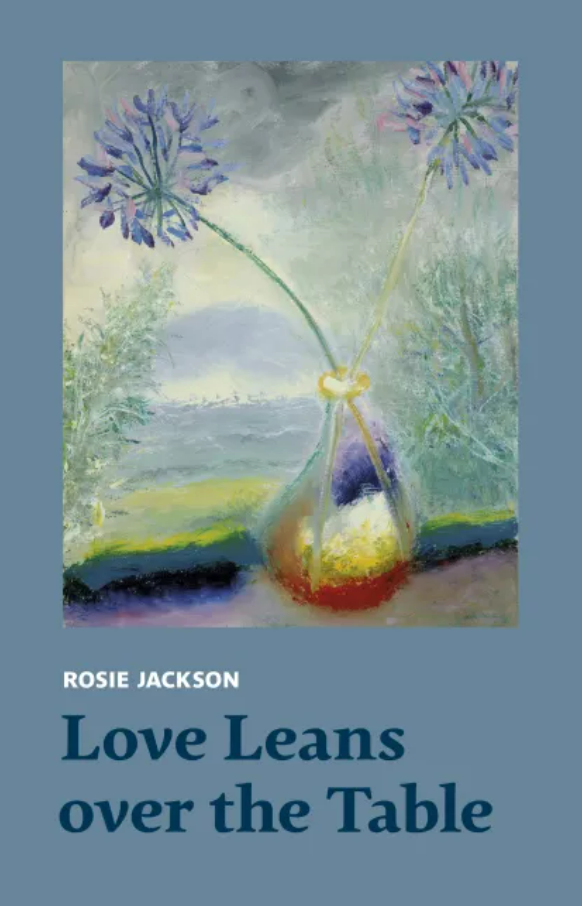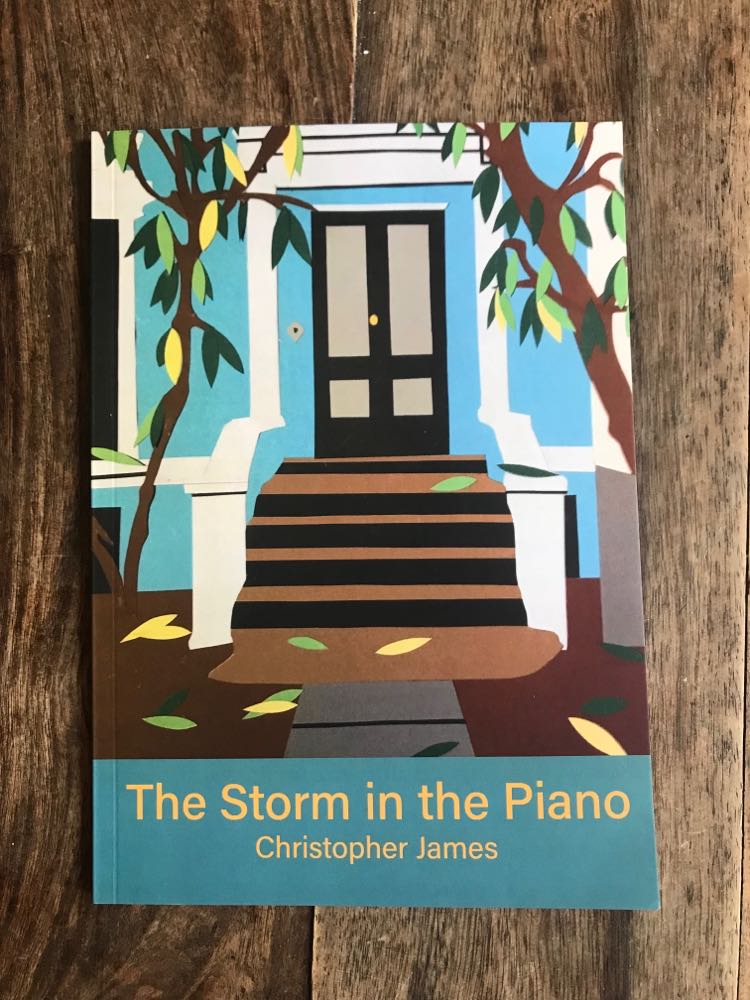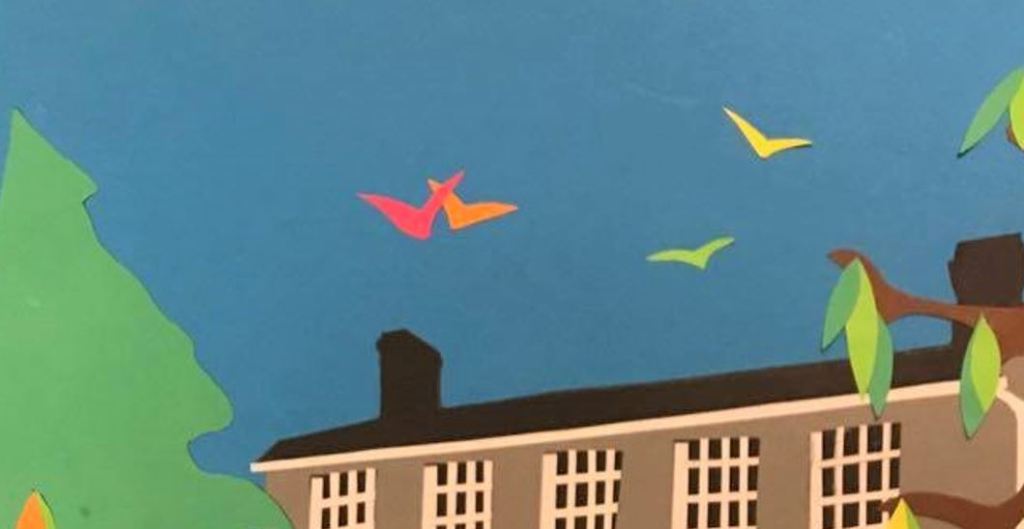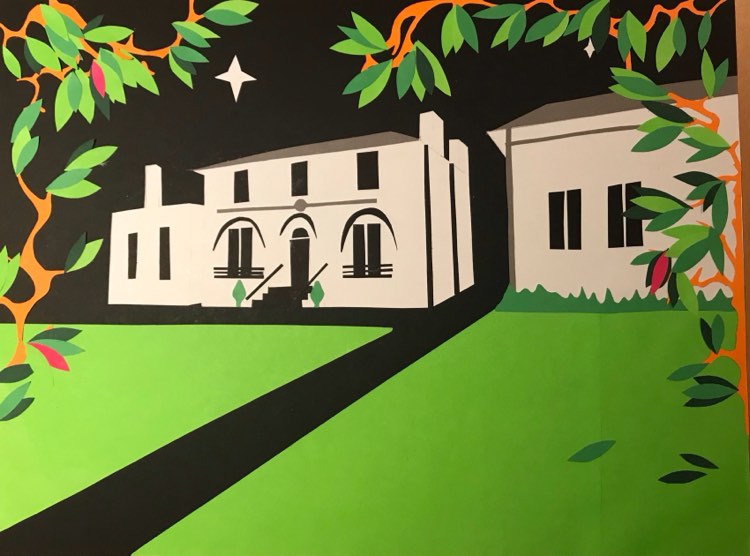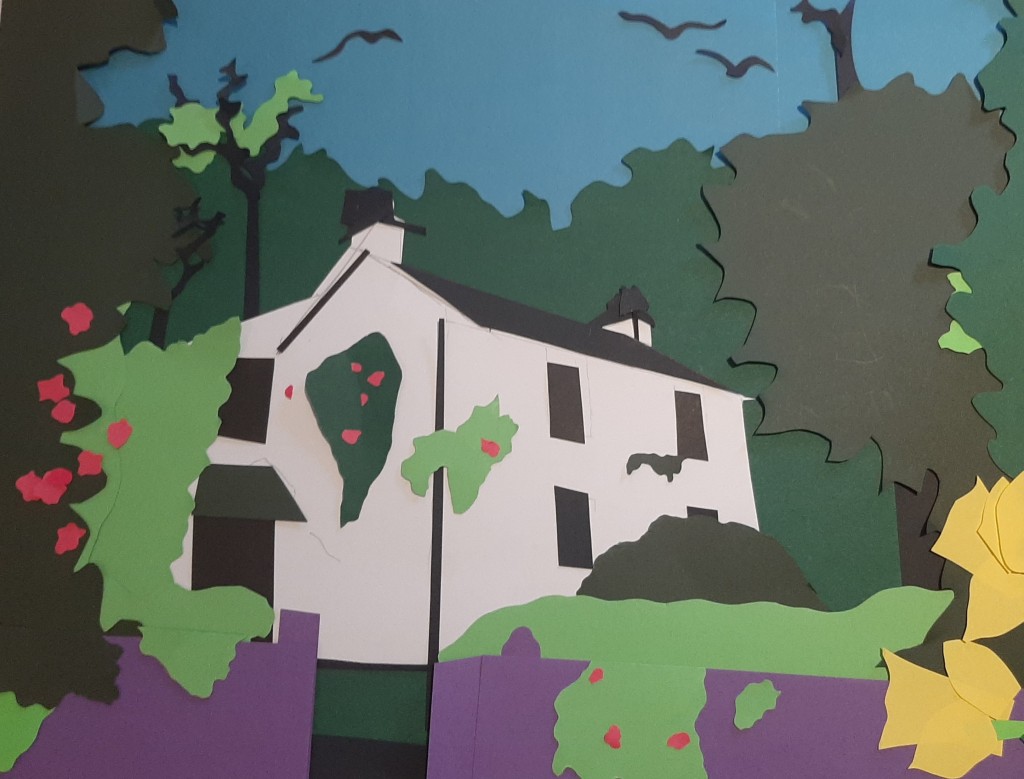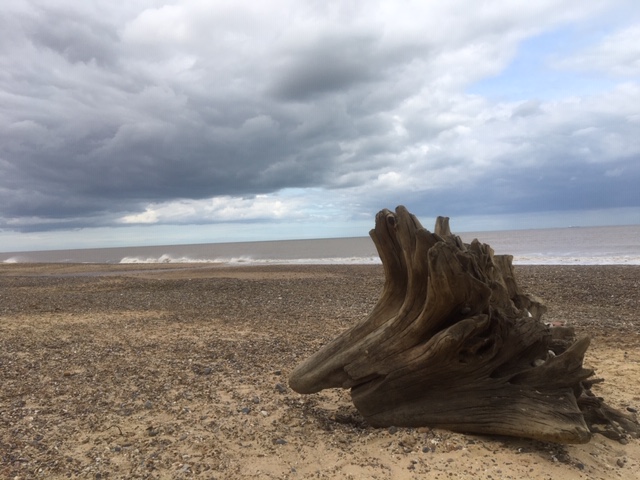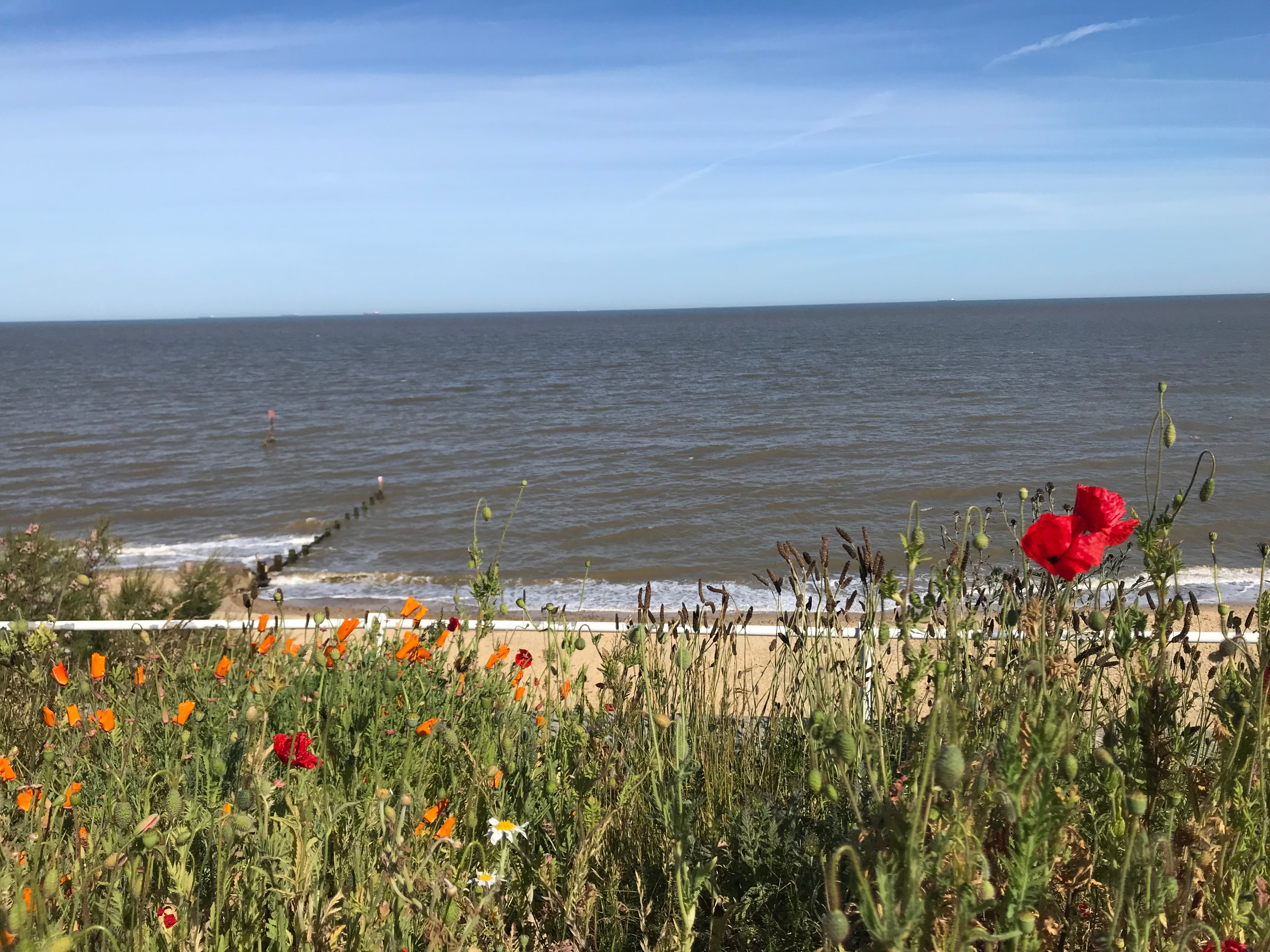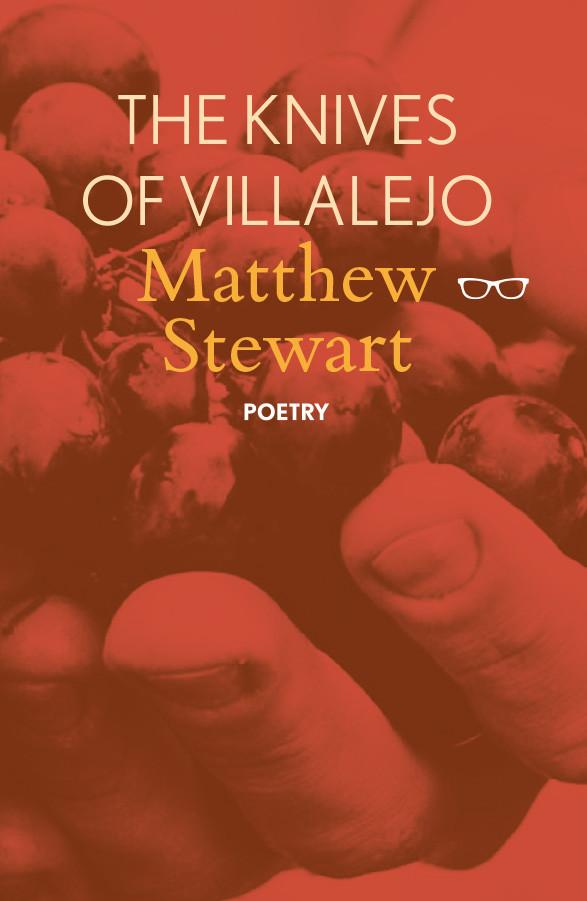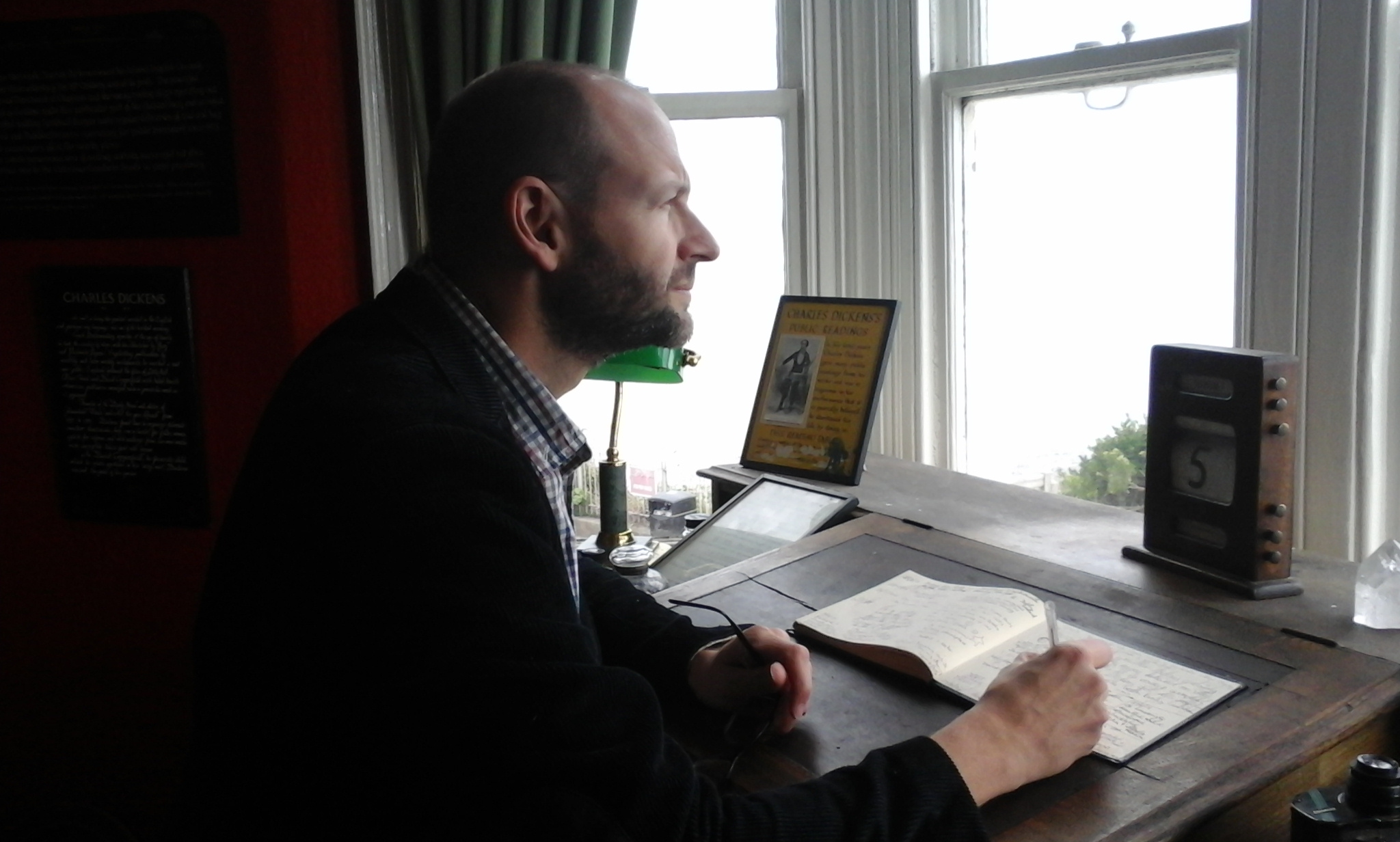‘We are very near the end, but have not, and will not lose our good cheer.’ Captain Scott, March 1912.
I recently wrote a collection of 65 sonnets commemorating Captain Robert Falcon Scott’s final expedition to the Antarctic (The Terra Nova expedition, 1910-1913). The book is called The Penguin Diaries (published by Templar, 2017) and there is one sonnet for each man who sailed south with him, 59 of whom returned. During the writing process I found, surprisingly, that there was no single place I could find a complete set of biographies for these gallant and occasionally foolhardy gentlemen. I have therefore written and collected these brief biographies here. I would be glad to correct any inaccuracies. The evocative image below was taken on Scott’s birthday, June 1911 aboard the Terra Nova by Herbert Ponting; sledging flags are hung above the table and Captain Oates is pictured standing on the left.

Shore Parties
ROBERT FALCON SCOTT Captain, C.V.O., R.N. (The “Owner,” “The Boss”). Born in Devonport, England in 1868. Joined the Royal Navy in 1881 aged only 13, later serving as Torpedo Officer on HMS Vulcan. Previously led the Discovery expedition (1901-1904) where he set a new record for furthest south with Shackleton and Wilson. Married to the sculptor Kathleen Scott. Died aged 43 on his return from the South Pole in March 1912.
EDWARD R.G.R. EVANS Lieut. R.N. (“Teddy”). Born in London, England in 1880. Second in command. Suffered from scurvy on return from the pole, saved by Lashly and Crean. Later served with distinction in the First World War as a destroyer captain and won further honours. Wrote South with Scott, his account of the expedition.
VICTOR L.A. CAMPBELL Lieut. R.N. (“The Wicked Mate”). Born in Brighton, England in 1875. Led the Northern Party, compelled to winter in an ice cave on Inexpressible Island. Led a miraculous journey on foot back to Cape Evans across 200 miles of unstable sea ice. Decorated during the First World War and died in Newfoundland, 1956.
HENRY R. BOWERS Lieut. Royal Indian Marines (“Birdie”). Born in Greenock, Scotland in 1883. Served in Burma and Ceylon as part of the Royal Indian Marine Service. Took part in the Winter Journey as well as the Polar Party. Highly practical, hardy and dependable. Died with Scott and Wilson in March 1912 on return from the pole.
LAWRENCE E.G. OATES Captain 6th Inniskilling Dragoons (“Titus,” “Soldier”). Born London, England in 1880. Educated at Eton and South Lynn School Eastbourne. Served in the Second Boer War; injured by a gunshot wound to the leg. Contributed £1,000 towards cost of the expedition. Expert with horses and ponies. Crippled with frostbite and in an effort to save his comrades, walked to his death in the snow with the words: ‘I am just going outside and may be some time.’
G. MURRAY LEVICK Surgeon R.N. Born in Newcastle upon Tyne, 1876. Worked as both as doctor and biologist; member of the Northern party; keen photographer and spent time observing the Adelie penguins, recording his findings in his book, Antarctic Penguins, controversial because of its account of their sexual proclivities. His notebook was discovered in 2013 outside the hut at Cape Evans.
EDWARD L. ATKINSON Surgeon R.N., Parasitologist (“Atch”). Born in the Windward Isles, in the West Indies, 1881. Educated at Snaresbrook and St Thomas’ Hospital London. Took charge of the base at Cape Evans in the absence of Scott and Campbell. Launched rescue attempts for both Northern Party and Scott’s Polar parties. Discovered Scott’s tent in November 1912. Later served on Western Front, fought at the Somme and received DSO. Died aged 47 and buried at sea.
Scientific Staff
EDWARD ADRIAN WILSONB.A., M.B. (Cantab.) Chief of the Scientific Staff, and Zoologist (“Uncle Bill”). Born Cheltenham, England, 1872. Artist, naturalist and member of the Discovery expedition (1901-1904). Led the Winter Journey to collect Emperor Penguin eggs. Member of the Polar party, reaching the pole on 18 January 1912, dying on the return journey. Scott’s closest friend and highly regarded by all.
GEORGE C. SIMPSON D.Sc., Meteorologist (“Sunny Jim.”) Born Derby, England, 1878. Educated at Owens College Manchester and University of Gottingen. Specialised in atmospheric electricity. Conducted balloon and weather experiments while on the Terra Nova expedition. Became Director of the Meteorological Office in 1920, knighted 1935 and died 1965.
T. GRIFFITH TAYLOR B.A., B.Sc., B.E., Geologist (“Grif”). Born Walthamstow, England, 1880. Emigrated to Serbia, then Australia as a child, returning to England to take up a scholarship at Cambridge. Led successful mapping and geological surveys as part of the Terra Nova expedition. Died aged 82 in Sydney.
EDWARD W. NELSON Biologist (“Marie,” “Bronte”). Born 1883 and specialised as an invertebrate zoologist; conducted tidal experiments at Cape Evans. Later fought in Gallipoli and on the Western Front during the First World War. Committed suicide by self-injection aged 39 in 1923.
FRANK DEBENHAM B.A., B.Sc., Geologist (“Deb.”). Born Bowral, Australia. Studied English, philosophy and geology at university. Took part in the Western Journey during the Terra Nova expedition. Entered Cambridge University on his return in 1913. Fought in France and Salonika during the First World War. Awarded OBE in 1919 and founded the Scott Polar Institute in 1920. Died Cambridge 1965.
CHARLES S. WRIGHT B.A., Physicist. Born Toronto 1887. Studied physics at University of Toronto. Initially rejected by Scott but walked from Cambridge with Griffith Taylor to petition for his place. Conducted experiments on ground radiation and ice formation while part of the Terra Nova expedition. Served in France during the First World War. Died in British Columbia, Canada aged 88 in 1975.
RAYMOND E. PRIESTLEY Geologist. Born Bredon’s Norton, England in 1886. Studied at University College, Bristol and served as a geologist on Shackleton’s Nimrod’s Expedition (1907-1909). Took part in the Western Party. Won the Military Cross in France during the First World War. Co-founded Scott Polar Institute with Frank Debenham and became a Fellow of Clare College. Died aged 87 in Cheltenham, Gloucester.
HERBERT G. PONTING F.R.G.S., Camera Artist. Born Salisbury, England in 1870, moved to California and worked in mining and fruit farming. Took up photography and travelled extensively in Asia, publishing in London periodicals. Professional photographer on the Terra Nova expedition. Published his photography in The Great White South and then produced The Great White Silence from his cine-footage. Died London 1935.
CECIL H. MEARES Chief Dog Handler on the Terra Nova expedition. Born County Kilkenny, Ireland. Travelled extensively, fought in the Russo-Japanese and Boer war. Chose dogs and white ponies for the expedition, following Scott’s orders. Returned north in winter 1912, declaring himself unavailable for work two months prior to departure. Joined Royal Flying Corps during First World War and later lived in Canada.
BERNARD C. DAY Motor Engineer. Born 1884 Leicestershire, England. Took part in Shackleton’s British Antarctic Expedition, 1907-1909. Later joined the Terra Nova expedition as a motor engineer, returning after the first year. Awarded the Polar Medal and settled in Australia.
APSLEY CHERRY-GARRARD B.A., Asst. Zoologist (“Cherry”). Born Bedford, England 1886. Educated Winchester College and Christ Church, Oxford. Joined Terra Nova expedition through friendship with Edward Wilson. Youngest member of the expedition, taking part in the Winter Journey, Polar Journey and Search Journey, spending three years in Antarctica. Wrote the acclaimed account The Worst Journey in the World. Died 1959 in London.
TRYGGVE GRAN Sub.-Lieut. Norwegian N.R., B.A., Ski Expert. Born Bergen, Norway in 1888 and educated in Switzerland. Took part in the Western Party and also part of the party that found Scott’s tent in November 1912. Used Scott’s skis to travel back to Cape Evans. Member of the Royal Flying Corps during First World War. Died in Grimstad, 1980 Norway aged 91.
Men
W. LASHLY C. Stoker, R.N. Born 1867 in Hambledon, England. Worked on motor sledges as part of the shore party, then switched to man-hauling. Member of the Polar party, returning with Crean and Edward Evans, helping save the latter when he became ill with scurvy. Served in the Navy during First World War and later as a customs officer. Died 1940.
W.W. ARCHER Chief Steward, late R.N. Took over from Clissold as cook on the Terra Nova expedition after Clissold suffered a fall. After the Second World War he retired from the Royal Navy and set up a catering business in London.
THOMAS CLISSOLD Cook, late R.N. Previously served on HMS Harrier; took part in the depot laying journey in December 1911 – January 1912. Replaced by Archer as cook after a fall from an iceberg while posing for a photograph. Later settled in New Zealand.
EDGAR EVANS Petty Officer, R.N. Born in 1876 in Middleton, Rhossili, Wales. Educated at St Helen’s Boys’ School before joining the Royal Navy. Served with Scott on the HMS Majestic. Admired by Scott for his size and strength and for being ‘a giant worker’ he was chosen at the last minute to join the polar party. Died in 1912 returning from the pole after suffering a serious head injury sustained in a crevasse fall.
ROBERT FORDE Petty Officer, R.N. Born in Moviddy, Ireland in 1875. Joined Royal Navy in 1891 and volunteered to take part in the Terra Nova expedition aged 35. Involved in two depot laying expeditions and member of the Western Party. Left the expedition early in 1911 after suffering severe frost bite to his hand. Served in WWI on various ships and promoted to Chief Petty Officer. Retired to Cobh (Queenstown) Ireland and died 1959.
THOMAS CREAN Petty Officer, R.N. Born 1877 near Annascaul, County Kerry, Ireland. Enlisted in Royal Navy aged 15 and took part in three major polar expeditions, including Discovery and Terra Nova expeditions with Scott and later Endurance with Ernest Shackleton. Renowned for his courage and fortitude he was a member of Scott’s last supporting party in 1911, returning with Lashly and ‘Teddy’ Evans. When Evans became incapacitated, he made a 35 mile solo trek across the ice back to Hut Point to get help. Returned to the navy, then retired in 1920 to Ireland, where he opened a pub called the South Pole Inn.
THOMAS S. WILLIAMSON Petty Officer, R.N. Born in Sunderland in 1877, joined Royal Navy and served on HMS Pactolus before joining the Discovery, then Terra Nova Expeditions. Survived a killer whale attack along with Ponting and Leese.
PATRICK KEOHANE Petty Officer, R.N. Born Courtmacsherry, County Cork, Ireland 1879. Served with Teddy Evans on HMS Talbot. Took part in the Southern Journey, turning back at head of the Beardmore Glacier at 85° 15’ South in December 1911. Member of the Search Party, finding the bodies of Scott, Wilson and Bowers in November 1912. Later joined coast guard, re-joined Navy during World War II and died Plymouth, England, 1950.
GEORGE P. ABBOTT Petty Officer, R.N. Previously served on HMS Talbot. Part of the Northern Party who wintered in Cape Adair and on Inexpressible Island. Served in the Royal Navy during the First World War and died 1923.
FRANK V. BROWNING Petty Officer, 2nd Class, R.N. Born Stockland, Devon 1882 and joined the Navy in 1900, aged 18. Served on HMS Talbot; member of the Northern Party, acting as cook. Known for his cheerfulness and resilience despite serious illness while on Inexpressible Island, only just making it back to Cape Evans. Served in First World War, retiring in 1922, dying of double pneumonia in 1930 aged just 48.
HARRY DICKASON Able Seaman, R.N. Born Bristol, England in 1885. Served on HSM Defiance before Terra Nova. Member of the Northern Party. Died 1943.
F.J. HOOPER Steward, late R.N. Born 1891, England. Originally a steward aboard Terra Nova, he later became a member of the shore party, and search party, discovering the bodies of Scott, Wilson and Bowers. Also part of the group involved in the second ascent of Mount Erebus. Died in England in 1955.
ANTON OMELCHENKO Groom. Born Bat’ki, Russia, 1883, Russia. Died in 1932 in the USSR.
DEMETRI GEROF Dog Driver. Born in Sakhalin, Siberia in 1888. Chosen by Mears when he went to Nikolayevesk to obtain the dogs for the expedition. Moved to England, then New Zealand after the expedition, before returning to Nikolayevesk to work as a gold miner, dying in 1932.
Ship’s Party
HARRY L. L. PENNELL Lieutenant, R.N. Born 1882, he spent most of the Terra Nova expedition in New Zealand, making only brief visits to Antarctica to bring supplies and remove crew members. Later served on HMS Queen Mary as Commander and died during the Battle of Jutland in May 1916.
HENRY E. DE P. RENNICK Lieutenant. R.N. Died while serving on the Hoguo, torpedoed by a German submarine in September 1914.
WILFRED M. BRUCE Lieutenant, R.N.R. Born in Scotland, he was the officer in charge of zoological work on the Terra Nova. He is also notable for being Captain Scott’s brother in law.
FRANCIS R. H. DRAKE Assistant Paymaster, R.N. (Retired), Secretary and Meteorologist in ship. No known relation to his more famous namesake.
DENNIS G. LILLIE M.A., Biologist in ship. Born 1884 and educated in Cambridge he was much admired aboard the Terra Nova, not only for his drawing skills of marine and bird life, but also for his accomplished caricatures. Served as military bacteriologist during the First World War. Suffered from poor mental health and was admitted to Bethlem Hospital, London in 1918. He never fully recovered and died 1963.
JAMES R. DENNISTOUN In charge of mules in ship. Born 1883 in Canterbury, New Zealand. Educated at Malvern College, England. Found early fame as a climber before joining Terra Nova in 1912 for no pay, looking after Himalayan mules. Served in North Irish Horse during the First World War before joining the Royal Flying Corps as a bomb thrower. Died of wounds in August 1916 after being shot down over Germany. A
ALFRED B. CHEETHAM R.N.R., Boatswain. Born Liverpool, 1867 and later based in Hull, England. Began a career in the Merchant Navy before making his first trip to Antarctica as part of the Discovery expedition, arriving on the relief ship, Morning. During the Terra Nova expedition, he volunteered to join the search for Scott but was turned down on account of his 13 children. He was later a member of Shackleton’s Nimrod and Endurance expeditions. Died in August 1918 when the SS Prunelle was torpedoed in the North Sea.
WILLIAM WILLIAMS Chief Engine Room Artificer, R.N., Engineer. After taking part in the British Antarctica Expedition he settled in the Bay of Islands, New Zealand, joining his brother, the Reverend Henry Williams.
WILLIAM A. HORTON Engine Room Artificer, 3rd Class, R.N., 2nd Engineer. Returned with the Terra Nova to Cardiff in 1913.
FRANCIS E. C. DAVIES Leading Shipwright, R.N. Carved the cross left in memory of those who lost their lives returning from the pole in 1912. Also played a significant role in saving Terra Nova during the storm on its journey south at the start of the expedition. Served in the navy during the First World War and continued in service until 1920. Settled in Plymouth, later returning his Polar Medal to the King.
FREDERICK PARSONS Petty Officer, R.N. Born in Allington, near Bridport, Dorset in 1870. Member of the ship’s company on the Terra Nova expedition not joining the shore party. Served on submarines during the First World War before starting a successful business repairing shoes in Plymouth. Died 1970 aged 91.
WILLIAM L. HEALD Late Petty Officer, R. N. Previously took part in the Discovery Expedition (1901-04) saving the life of Farrar who was suffering from scurvy. Heald Island, Antarctica is named after him.
ARTHUR S. BAILEY Petty Officer, 2nd Class, R.N. Serving in the Royal Navy when he was asked to join the British Antarctic Expedition, Arthur Samuel Bailey was a member of the shore party and later awarded a Polar Medal.
ALBERT BALSON Leading Seaman, R.N. Born Allington near Bridport 1885. Entered Royal Navy in 1900. Joined HMS Powerful in 1911, before transferring to Terra Nova at Lyttleton. Later took part in the Gallipoli landing during the First World War. Later worked as a salvage diver, employed for many years collecting gold from the ship, Laurentic. Also decorated for gallantry for diffusing a bomb in 1941 during air attacks in Portland Harbour. Died 1950 in Dorset, aged 65.
JOSEPH LEESE Able Seaman, R.N. Staffordshire born, he was later to recall the terrible storm that the Terra Nova encountered on its journey south. In Antarctica he was almost the victim of a killer whale attack when the creatures attempted to break up the ice he was standing on to reach the dogs. Settled in his home county after naval service.
JOHN HUGH MATHER Petty Officer, R.N.V.R. Born 1887, Stroud Green, London. Assisted with clerical work and taxonomy. After the Terra Nova adventure, became a naval commander during the First World War and took part in a successful campaign against the Bolsheviks in Arctic Russia. Died 1957 in Farnborough, England.
ROBERT OLIPHANT Able Seaman. Born Strathmiglo, Fife, Scotland, 1883, joining for the first part of the expedition. Died just after the First World War in 1919.
THOMAS F. MCLEOD Able Seaman. Born Glasgow, Scotland 1873, later moving to Stornoway as a child. Joined British Merchant navy aged 14. Later served with Shackleton on both the Endurance and Quest expeditions. Later emigrated to Kingston, Ontario in Canada where he was employed as a school caretaker and night-watchman. Died in 1960 aged 87.
MORTIMER MCCARTHY Able Seaman. Born Kinsale, Co. Cork, Ireland in 1878; served on Terra Nova during its three voyages to Antarctica from New Zealand between 1910 and 1913, later settling in New Zealand.
WILLIAM KNOWLES Able Seaman. Born in Liverpool, 1877, later emigrating to Lyttleton, New Zealand. Took part in the second and third voyages of Terra Nova to Antarctica, helping to build the cross on Observation Hill. Served on HMS Philomel during the First World War and was killed in 1915 while part of a landing party near Alexandretta following an ambush by Turkish troops in 1915.
CHARLES WILLIAMS Able Seaman. Born in Lyttleton, New Zealand 1881. Joined the navy in 1900. Played a key role in saving the Terra Nova during the storm on its journey south in 1910, cutting a hole in the bulkhead to reach the pump. Served on ships during the First World War with Commander Edward Evans, distinguishing himself during the altercation between the German SMS G42 and HMS Broke. He returned to New Zealand and was lost at sea in 1919.
JAMES SKELTON Able Seaman. Settled in Cardiff, working on the docks after service in the Royal Navy during the First World War.
WILLIAM MCDONALD Able Seaman. There is a report in a New Zealand newspaper of a concert given for the departing crew of the Terra Nova, with the detail that Angus McDonald sang at the event.
JAMES PATON Able Seaman. Born Scotland 1869. Served on the Morning, a relief ship to the Discovery expedition. Later took part in Shackleton’s Nimrod and Aurora expeditions. Lost while travelling to South America in 1917 or 1918, possibly after hitting a mine.
ROBERT BRISSENDEN Leading Stoker, R.N. Drowned in August 1912 in Elslie Bay, while employed surveying Admiralty Bay. There was a suspicion of drink being involved in his death, although this was refuted by those with him the night he drowned.
EDWARD A. MCKENZIE Leading Stoker, R.N. One of five stokers on the Terra Nova during the expedition, McEnzie is now famous for the pair of Wolsey unshrinkable mittens he wore on the expedition and are now preserved for posterity.
WILLIAM BURTON Leading Stoker, R.N. Born 1888, died 1988 in his 100th year, making him the last member of the expedition to die. Returned to Antarctica later in life with McDonald and Mortimer.
BERNARD J. STONE Leading Stoker, R.N. Was awarded a Bronze Polar medal on 24 July 1913 by King George V.
ANGUS MCDONALD Fireman. Born West Calder, West Lothian in 1871. Notable for being one of three members of the expedition to return to Antarctica at the invitation of the Americans.
THOMAS MCGILLON Fireman. Sailed with Shackleton on the Nimrod (1907-1909) surviving several near fatal accidents before joining the British Antarctic Expedition.
CHARLES LAMMASFireman. Born Bethnal Green, London, 1883, the son of a carpenter. Lived in Canterbury, New Zealand most of his life and died in Christchurch Hospital, New Zealand in 1941.
W.H. NEALE Steward and member of the ship’s party. On the Terra Nova, he was responsible for waking the crew, serving food as well as attending to the officers in the afterguard (or mess).


